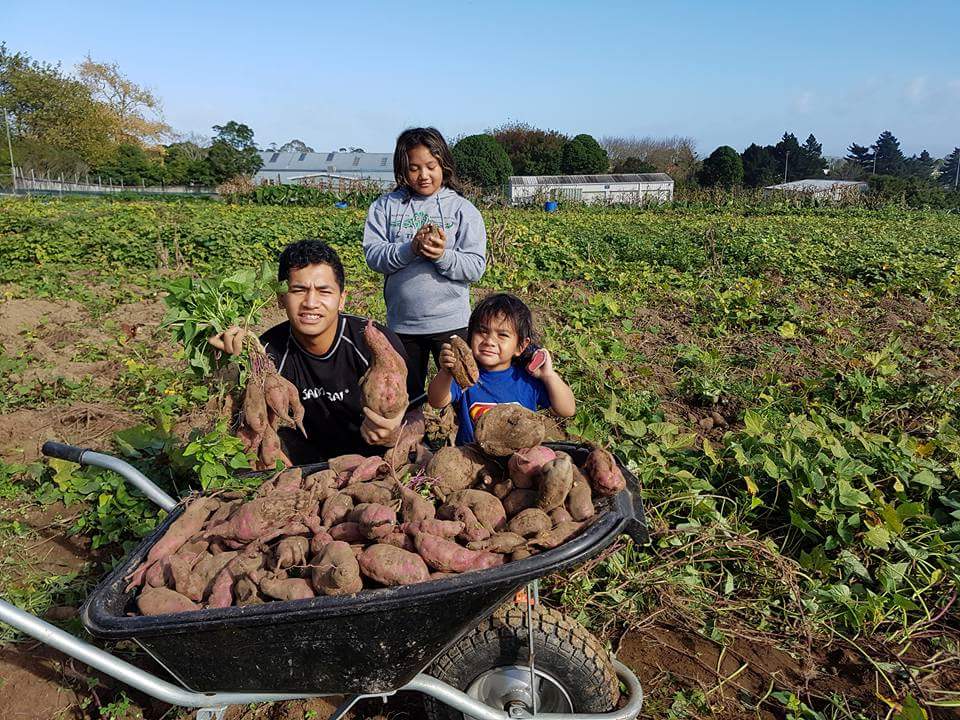
Urban farms and urban agriculture. Sounds like an oxymoron, doesn’t it? But dig a little deeper and you’ll find a movement that mitigates climate change, improves food security and strengthens communities. Now I know that sounds like a really big job, but it’s grounded in the most simple of things – growing food.
Over the last couple of months we’ve looked at the kind of food that’s good for you and the environment, and the kind that isn’t. We’ve also scratched the surface of the topic of climate change; how it affects you and the things you can do to fight back.
In this post I’d like to share one of the ways you can enjoy locally-grown, healthy food, mitigate the effects of climate change and help build a more resilient community – just by getting your hands a little dirty!
Over the last 150 years food production has moved further and further out of sight for most of us and now takes place far away from where food is eaten. When was the last time you walked through a field of crops? Chances are not at all or not in a long time, since there isn’t much land devoted to growing cereals in New Zealand. Large scale industrial agriculture focuses on monoculture, high-profit, high-yield crops and animals systems that can be exported and New Zealand is quite squarely in the dairy and meat game. so not many rolling fields of grains here. Herbicides, fungicides and fertilisers, which are used extensively in ‘conventional’ agriculture damage the delicate balance of the underground ecosystem, and genetic modification has led to crops designed to be grown at scale, but with no regard for their nutritional value or their impact on the environment. Industrial agriculture may have seemed like a good idea at the time, since it held the promise of saving millions from starvation, but it has now emerged that it comes with many pitfalls and we can see that it certainly isn’t sustainable in the long run.
At its most simple, urban agriculture moves food production closer to the community that eats it. This not only reduces the costs of transport, urban agriculture almost always uses sustainable growing methods often focussing on regenerative methods that sequester carbon and produce food that’s packed with nutritional goodness, thus improving the physical health of the community. But those aren’t the only benefits – there’s also evidence that gardening – the simple act of getting soil on your hands – improves mental and emotional wellbeing too, especially when it’s done together with others.
Urban agriculture integrates food production into both the ecological and economic systems of the urban landscape. Community gardens are springing up all around the country – Ōtakaro Orchard in Christchurch, Thames’ award-winning community garden and Auckland’s own long standing Kelmarna Organic Gardens in Ponsonby are just a few of the productive patches that are feeding and educating communities and help fight back against climate change.
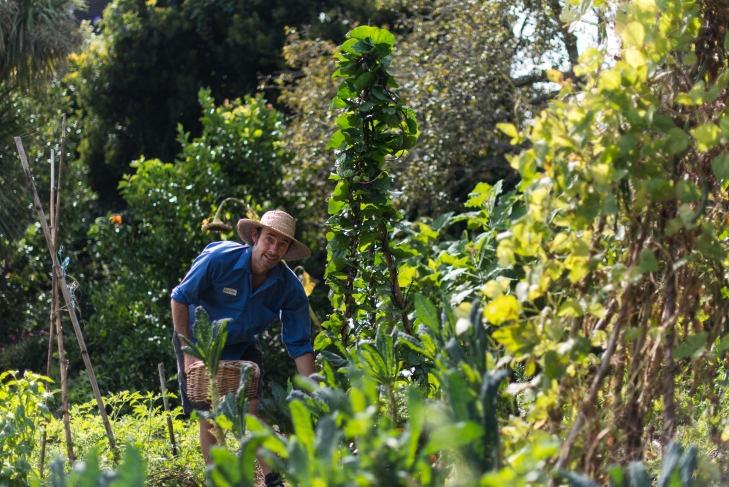
Adrian Roche, manager of Kelmarna Gardens, says their garden is a great example of the range of food that can be grown in Auckland, and urban farms and gardens should be systems that provides real calories that feed real people. Growing a wide range of food from sunflowers to celery, lemons to lettuce, Kelmarna feeds more than just the body – it feeds the mind and the soul too, providing education about sustainability along with much needed support and therapy for people who have experienced mental illness.
Gardening is a great entry into learning and caring about the environment, says Adrian, and he suggests you’ll soon pick up knowledge and skills volunteering at a community garden near your place. If there are no community gardens near you you could always start your own food farm in your back (or front) yard. Have a look at the amazing story of the township of Todmorden in Yorkshire, England, where you can learn what happened when two friends turned their front yards into vegetable gardens, took the fence down and invited the community in.
When soil is nurtured and built up and the area managed in a sustainable way, it’s amazing how much food you can harvest from a small piece of land. You’ll also be helping reduce the impact of climate change – while trees do a great job of sequestering carbon, it’s a pretty slow process. Urban gardens can do it at a much faster rate. Trees certainly have their place, but when it comes to carbon, food farms are faster!
Lionel Hotene, garden manager at Mangere’s Papatuanuku Kokiri Marae understands the importance of caring for the environment. He wants to see people reconnect with the earth and has a great way to help kids think about how precious our planet is. “Imagine that Mother Earth is your Nan” he says, “would you put a plastic bag on your Nan? Drop an empty bottle on her?” For many kids, he says, it’s their lightbulb moment, and helps them understand the importance of the earth, all the goodness she can provide and the need to take care of her.
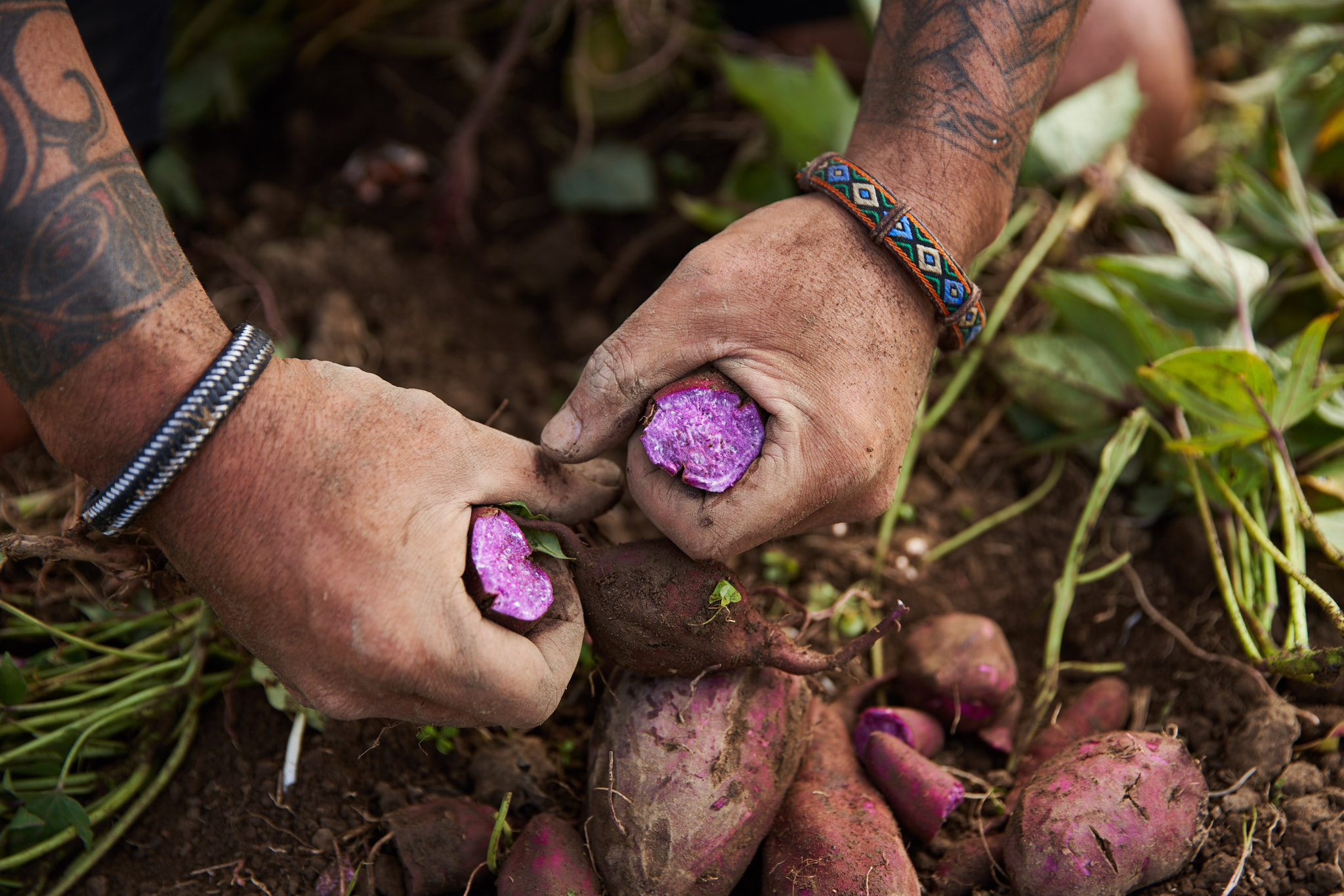
The marae serves a community of about 3000, with 300 or so people coming through the gate each week. Operating the garden by the principles of Te Waka Kai Ora – National Maori Organics Authority of Aotearoa, it began 30 years ago on just a hectare of land. As part of their goal to encourage healthier lifestyles, they not only provide fresh kai, but also certificate-level Kai Oranga programmes, teaching organic food production using traditional Māori values and ethics. With a focus on food as medicine, the kai is important for the community and so are the other courses on offer, including financial literacy and te Reo. No matter the subject, according to Lionel all courses lead to the garden – he sees it as the antidote to so many of the problems in the community, many of which stem from the disconnect of whānau from the earth. He says it’s time for a food revolution – a grass-roots movement that changes the food landscape forever. I agree – it’s time to turn the tide of industrial agriculture and food production and return to growing and eating food that does us good rather than harm. We’re part of a finite system – there is no more, we can’t just go and live on Mars when we’ve completely drained this planet of all its resources. For Lionel, connecting people with Mother Earth through food is key, and that’s a vision shared by everyone I’ve talked to for this post.
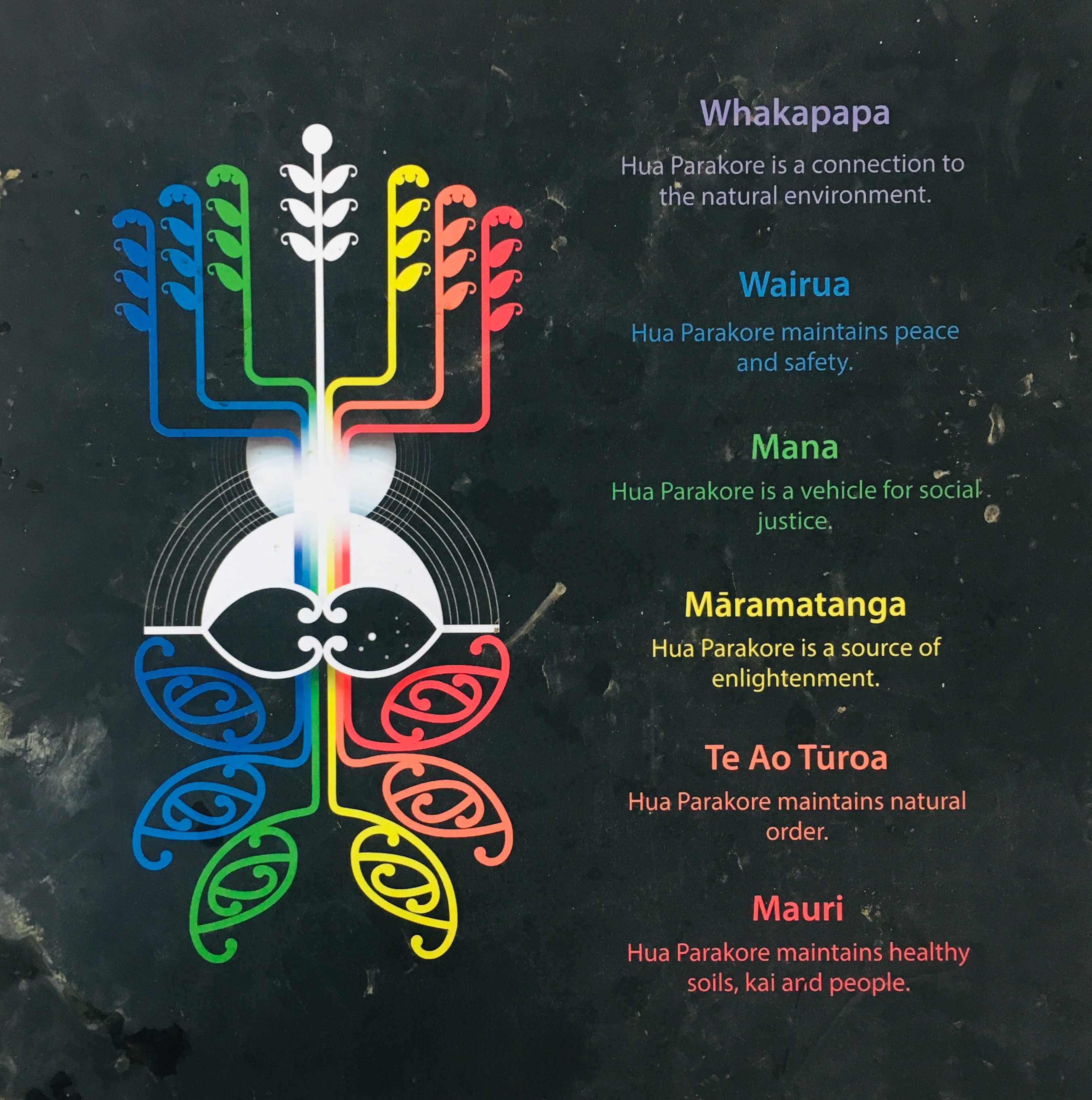
Artist and biodynamic gardener Sarah Smuts-Kennedy from the Organic Market Garden (OMG), an experimental project in urban farming that Bread & Butter Bakery proudly sponsors, on Symonds Street has always been interested in the interaction between communities and their ecological systems, whatever the scale. From the micro to the macro, it’s a fascinating relationship and her first brush with it came at Maunga Kereru, where she spent 10 years learning to ‘grow’ soil. Soil is a community of its own – a complex system of many different organisms working together, building up networks that transport nutrients to plants.
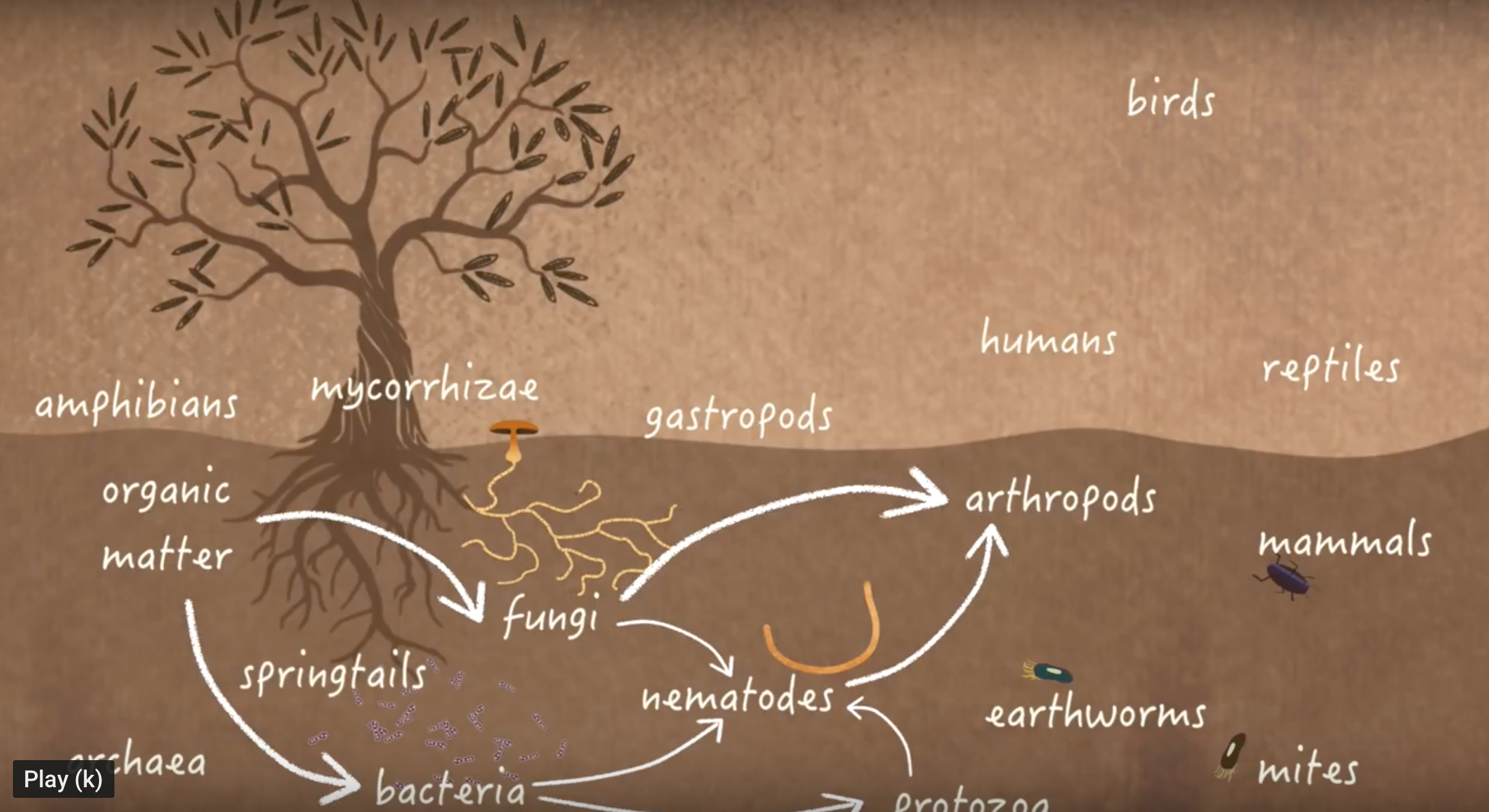
Having tried this in her own garden, Sarah wanted to expand her horizons and extend her success to the urban environment. Understanding that industrial agriculture makes life tough for bees, she wanted to show that you can do agriculture in a way that rebuilds rather than damages the ecosystem, and therefore provides a healthy home for bees (and humans!). She wanted to be able to prove that it’s possible to grow at scale using systems that are gentle on the environment and don’t harm bees. OMG and For the Love of Bees are two of the products of this. For the Love of Bees is a movement inspired by “collaborative participation in the regeneration of the planet, sparked by our shared love for bees”, and invites you to imagine your own city as the safest place in the world for bees. By helping seemingly unrelated ecological projects become a large cohesive action, Sarah aims to create a future that’s not only sustainable, but regenerative too.
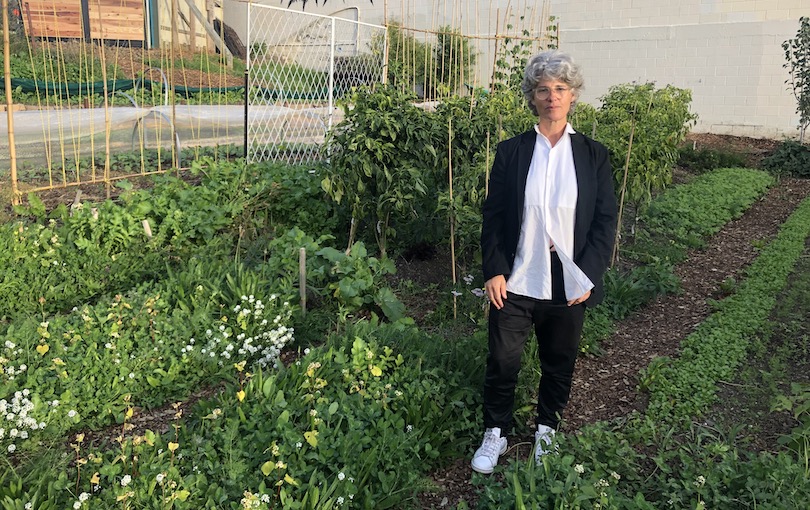
Sarah says bees are the canary in our coalmine – if local hives aren’t doing well, there’s something out of balance in the ecosystem. Bees are also a metaphor for communities – they work collaboratively, and the wellbeing of the colony is the priority for every single bee in the hive. A bee will do whatever it takes to keep the hive healthy, and Sarah says we can do this too. Every time we buy something, do something or dispose of something, we can make a conscious decision about it. We can ask ourselves “Will it benefit my individual landscape? My local landscape? And will it benefit the global landscape?” If the answer is yes, you’re on the right track.
Sarah says the changing climate is an urgent problem, but also an exciting one that will lead to great change and innovation as the focus moves from industrial to regenerative agriculture. In establishing a symbiotic relationship between the planet and the people, agro-ecology will help us prepare for climate-change as well as slow its arrival.
Sarah has advice for anyone wanting to get started. “Whether you’re developing a small garden in your back yard or a large-scale community garden, it’s essential to get the ecosystem right – start by removing agrochemicals, then build the density, complexity and diversity of the soil”. Anyone with a backyard can do it – for many Kiwis the quarter-acre paradise is nothing more than a rose-tinted dream, but even a pocket-sized space can produce food and help reduce our impact on the planet.
It’s easy to be overwhelmed by news of climate change, but we all have to eat and by changing the way we eat, we can either continue to contribute to the excelleration of climate change or we can choose to halt and hopefully reverse it. How?
First up, eat local.
Eat local. Eat organic. Ask where your food comes from. Start seeking out urban, regenerative farmers and become friends with them!
Next, learn.
Learn how soil works, why bees are so important, and what you can do to support your new friends. Check out the 59degrees.se website and youtube videos for this.
Then, do.
Make 2019 the year you start, or upscale, your food production. Grow your own or find a community garden you can help out with.
Spread the word – share your stories, your pictures, your recipes and your time.
Ask questions, and if you don’t like the answers, seek to change them.
Urban agriculture produces healthy, affordable food, grown locally. It helps mitigate the effects of climate change. It builds stronger, more resilient communities. Be a part of it!
LINKS and further reading & listening:
Kelmarna Gardens: http://www.kelmarnagardens.nz/
Papatuanuku Kokiri Marae: https://www.facebook.com/papatuanuku.kokirimarae
For The Love of Bees: https://www.fortheloveofbees.co.nz/
The UN’s take on urban agriculture: http://www.fao.org/urban-agriculture/en/
Other examples of urban farms from around the world: https://www.theguardian.com/sustainable-business/2014/jul/02/next-gen-urban-farms-10-innovative-projects-from-around-the-world
An inspirational podcast interview with Zach Bush, a physician working on the transformation of human and planetary health: https://www.richroll.com/podcast/zach-bush-414/
Incredible edible Todmorden, Yorkshire, England: https://www.incredible-edible-todmorden.co.uk
Soilbiology / 59degrees.se is a Swedish research team that aims to educate about the evolution, building and rehabilitation of soil systems. Watch some of their videos here: https://www.youtube.com/results?search_query=59+degrees
Can I purchase Kelmarna Organic Gardens in Ponsonby whole produce from Bread and Butter during the lockdown?
LikeLike